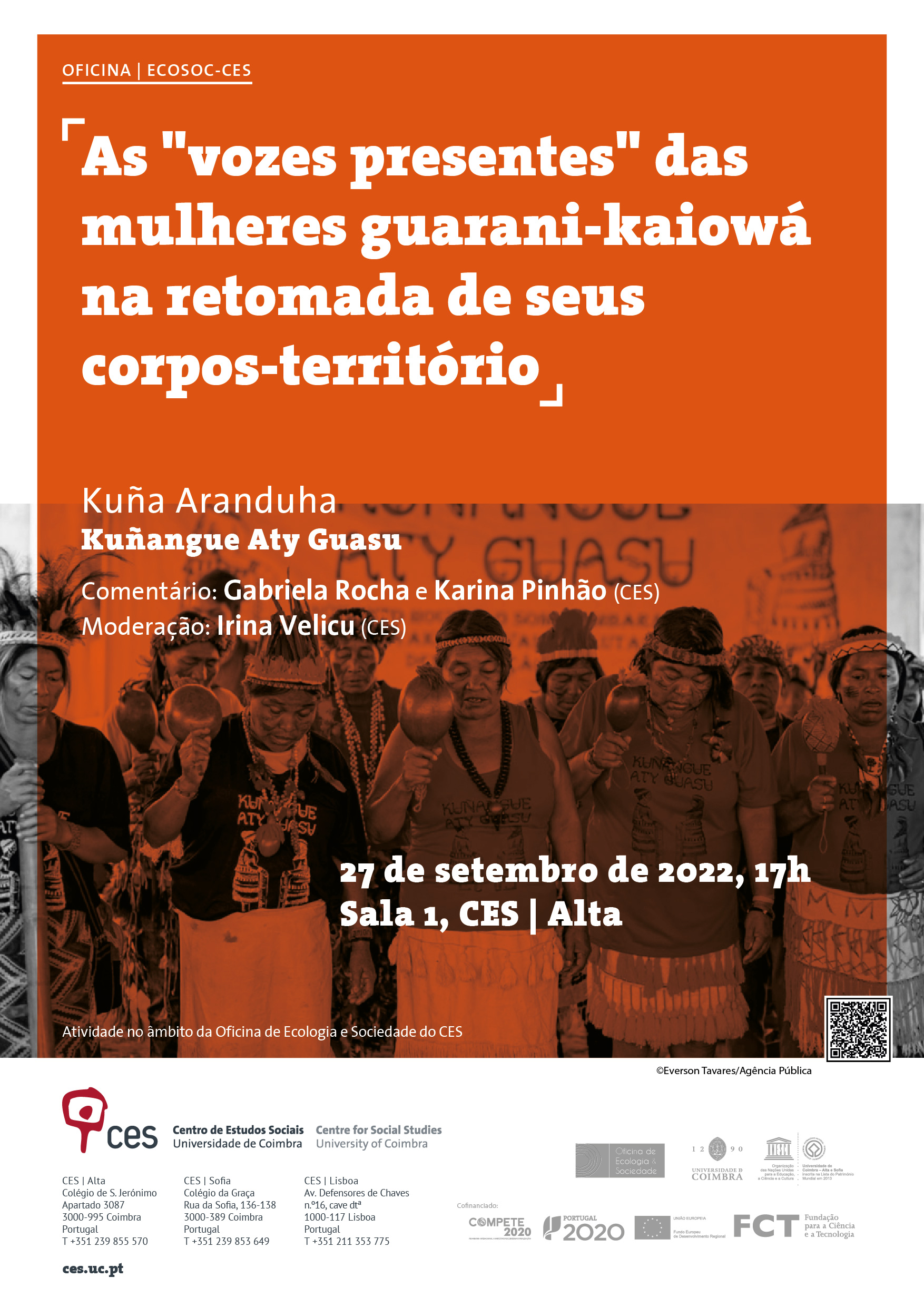WORKSHOP| ECOSOC-CES
The "present voices" of the Guarani-Kaiowá women in the retaking of their body-territory
Kuña Aranduha (Kuñangue Aty Guasu)
September 27, 2022, 17h00
Room 1, CES | Alta
Comments: Gabriela Rocha e Karina Pinhão (CES) | Moderator: Irina Velicu (CES)
About
Guarani-Kaiowá women are part of the great Guarani-Kaiowá people located in the Southern Cone of Mato Grosso do Sul, in the central-western region of Brazil and on the border with Paraguay. Having suffered historically from processes of territorial dispossession and severe environmental impacts caused by colonialism, capitalism and heteropatriarchy, the Guarani-Kaiowá women launched their Map of Violence entitled "Silenced Bodies, Present Voices: violence from the perspective of Guarani-Kaiowá women". In this report, the women return to their body-territory and denounce the violence suffered by Guarani-Kaiowá women with their "present voices". In it, they bring new perspectives on how we define violence against women, as well as the methodologies and narratives used.
The mapping of violence against Kaiowá and Guarani women is a demand of the Kuñangue Aty Guasu Women's Grand Assembly and was carried out by the women of this people. Here we address the violence that occurs in indigenous territories against the lives of indigenous women located in the Southern Cone of the state of Mato Grosso do Sul, west central Brazil. Work in baby steps, but built collectively, bringing the gaze, the cry, the voice of these indigenous Guarani and Kaiowá women. For this to happen, a team of indigenous women from various regions of the state was built to make up the council of Kuñangue Aty Guasu so that surveys could be conducted in their communities. The Map is available HERE
Bio note
Kuña Aranduhá is of the Kaiowá people, mother of Jajá. Activist in and of Kuñangue Aty Guasu, Great Assembly of Kaiowá and Guarani Women. She fights for the Kaiowá and Guarani people, especially for indigenous women, seeking to give them voice and visibility to the struggle and resistance of the nhandesys (elders and shamans). In her journey of improvement, she graduated in Social Sciences, and is currently studying for a Masters in Anthropology at the Federal University of Grande Dourados - UFGD, with the theme Violence against Guarani and Kaiowá indigenous women


